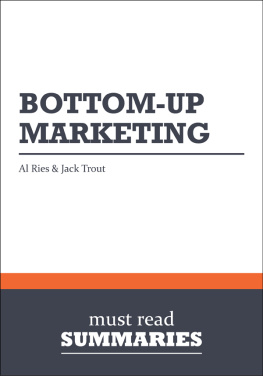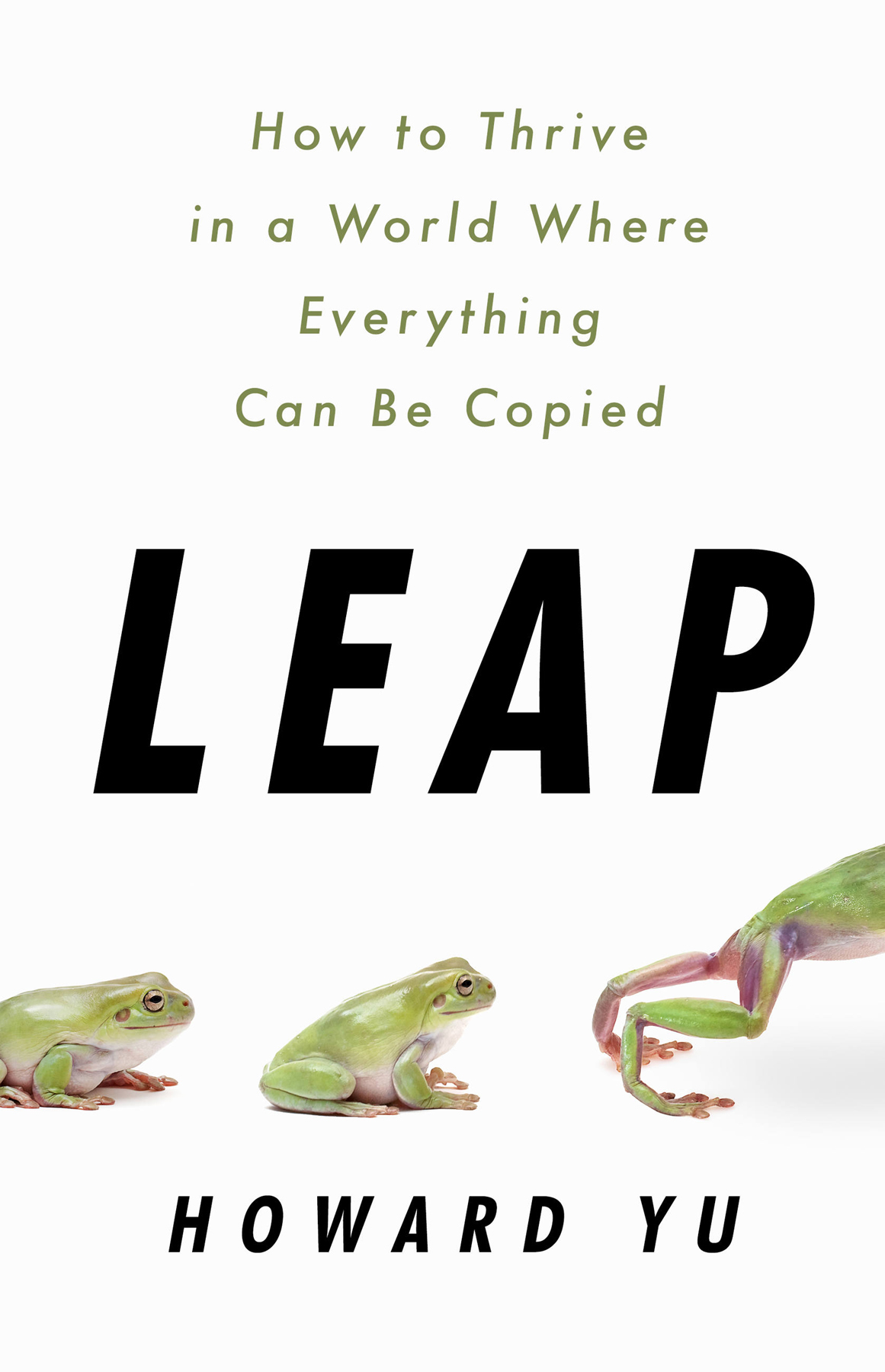Hachette Book Group supports the right to free expression and the value of copyright. The purpose of copyright is to encourage writers and artists to produce the creative works that enrich our culture.
The scanning, uploading, and distribution of this book without permission is a theft of the authors intellectual property. If you would like permission to use material from the book (other than for review purposes), please contact permissions@hbgusa.com. Thank you for your support of the authors rights.
Published by PublicAffairs, an imprint of Perseus Books, LLC, a subsidiary of Hachette Book Group, Inc. The PublicAffairs name and logo is a trademark of the Hachette Book Group.
The Hachette Speakers Bureau provides a wide range of authors for speaking events. To find out more, go to www.hachettespeakersbureau.com or call (866) 376-6591.
The publisher is not responsible for websites (or their content) that are not owned by the publisher.
Names: Yu, Howard, author.
Title: How to thrive in a world where everything can be copied / Howard Yu.
Description: New York: PublicAffairs, [2018] | Includes bibliographical references and index.
Identifiers: LCCN 2018009025| ISBN 9781610398817 (hardcover) | ISBN 9781610398800 (ebook)
Subjects: LCSH: Strategic planning. | Competition. | Organizational change. | Technological innovationsManagement.
A truly remarkable book that addresses the fundamental challenge facing managers who seek to sustain growth. Powerful case examples illustrate important concepts drawn from science and sociology as well as business.
J OSEPH L. B OWER , Donald Kirk David Professor, emeritus, Harvard Business School
Howard Yus excellent new book answers the most fundamental question in businesshow do we survive over the long term through thoughtful adaptation? Leap shows you how to go about deliberately thinking about adapting your business, and investigates the forces of technology and todays global market realities that companies must either adapt to thrive, or ignore at their peril. Every leader can benefit from the wisdom found in this book.
J RGEN V IG K NUDSTORP , Executive Chairman, LEGO brand group
In a world driven by global competition and constant change, businesses increasingly struggle to achieve long-term success. This book is a unique source of strategic ideas that will enable complex organizations to reinvent themselves and drive sustainable growth.
U RS R OHNER , Chairman, Credit Suisse Group
Howard Yu argues that, even in a future age of machine intelligence, the human ability to innovate will be the primary factor enabling companies to thrive. His advice will be invaluable to managers and CEOs worldwide.
V. G. G OVINDARAJAN , Coxe Distinguished Professor of Management at the Tuck School of Business, Dartmouth University, and author of New York Times bestseller Reverse Innovation
At a time when big business is challenged by start-ups, when 100 year old business models have run out of steam, and when you next competitor can come from a totally unrelated industry, Howard Yu offers important guidance on how to reinvent corporations and the need for top leaders to show compassion, pride, solidarity and vulnerability as organizations embark on the process. The marriage of big data and humanity can fundamentally change business. I cant recommend this book highly enough.
P OUL W EIHRAUCH , Global President Petcare, Mars Inc.
As technologys tectonic shifts reshape how companies win, Howard Yu shows the criticality of good management today. In Leap, hes written a valuable guide to help managers prepare their companies for long and successful lives.
K EITH F ERRAZZI , Chairman of Ferrazzi Greenlight and author of New York Times bestsellers Never Eat Alone and Whos Got Your Back
A deeply thoughtful journey on why human curiosity and creativity matter more, not less, than ever in the new brave world of ubiquitous connectivity and smart machines. And why and how we as leaders need to learn to leapand not just incrementally extrapolate what we already know.
J OUKO K ARVINEN , Chairman of Finnair
To the memory of my father, Jimmy
The opening up of new markets, foreign or domestic illustrates the same process of industrial mutation that incessantly revolutionizes the economic structure from within, incessantly destroying the old one, incessantly creating a new one. This process of Creative Destruction is the essential fact about capitalism.
J OSEPH S CHUMPETER , A MERICAN -A USTRIAN ECONOMIST (18831950)
O UTLASTING COMPETITION IS DIFFICULT. D OING SO OVER decades or a century often seems impossible. Since the great Industrial Revolution, every country that has become rich started by copying others: the French copied the British, the Americans copied the Germans, and the Japanese pretty much copied everybody else.
In the midst of this competition, countless players fell. Yet some pioneering companies have managed to endure and even prosper over the course of centuries. How is that possible?
WHEN EVERYONES A GENIUS: A RACE TO THE BOTTOM
Greenville, South Carolina, 1872
Henry P. Hammettwho was the mayor of Greenville, South Carolina, a century and a half agowas a happy man. He was also a To the mayor, the newly launched railroad was the Piedmonts best chance at reforming its economic outlook. It offered an opportunity to shed the Piedmonts former reputation as a poor white enclave burdened by indebted farmers and mountain dwellersremote, aloof, and primitive.
During the golden age of American railroading between the late 1870s and 1890, some 73,000 new miles of track were built. That translated into about 7,000 miles a year. Much of that went into the Deep South and western areas. It was also a vision so compelling that Mayor Hammett took up his own advice given at the business gathering and set up the Piedmont Manufacturing Company (PMC), taking advantage of the newfound connectivity. On March 15, 1876, PMC began exporting cotton sheeting rolled onto cylinders with diameters of up to 36 inches, using the most modern textile machinery available for manufacturing, to a fast-growing market overseas: China.
The project was a huge success. By 1883, after acquiring some $80,000 worth of machinery, PMC had become the largest textile producer in South Carolina, with 25,796 spindles and 554 looms. Five years later, Hammett opened a second factory, Piedmont Number Two. Then he opened a third, Piedmont Number Three, the following year.
Despite this breakneck expansion, others quickly came to dwarf PMC. Bigger namesHolt, Cannon, Gray, Springs, Love, Duke, Hanesswept through the region as the international market took off. Collectively, they ended the tight grip British manufacturers had over the Asian market since the Industrial Revolution. And by the 1930s, southern spindles accounted for 75 percent of the US total. Local news routinely attributed the stunning success to the salesmanship and ingenuity of the hardworking southerners, who had pretty much put everyone else out of business.





